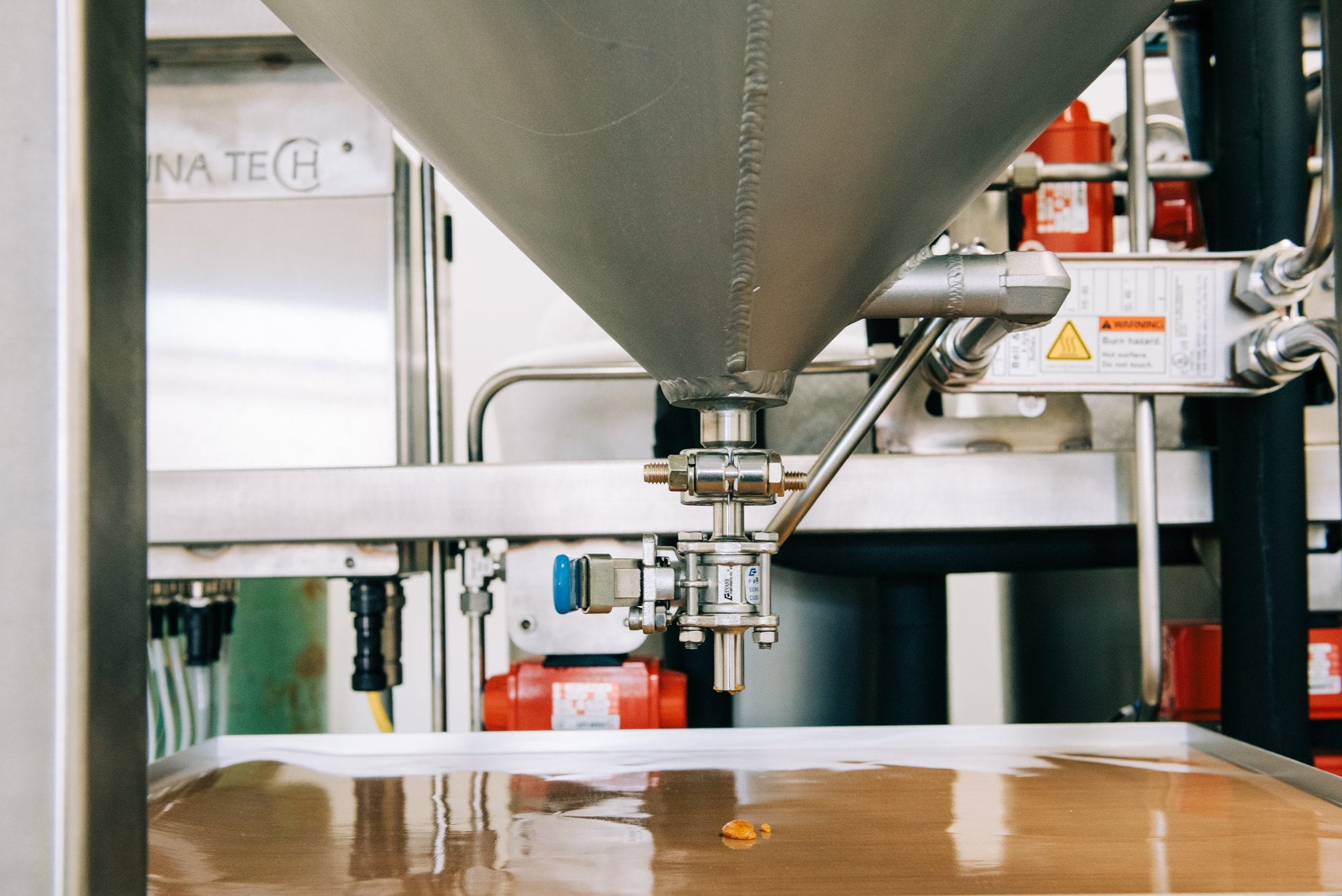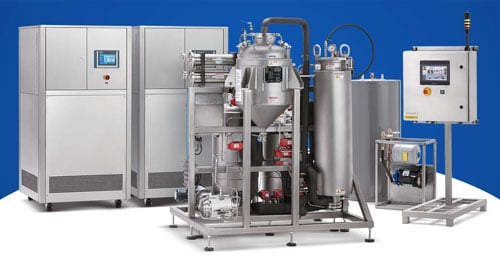Cannabis concentrates are a must-have product offering for brands looking to reach a growing cannabis consumer base. Concentrated cannabis compounds can be used to make a wide range of medical and recreational products such as topical ointments, edibles, capsules, transdermal patches, suppositories, and small-batch extracts. While THC concentrate products currently dominate the adult-use market, hemp-derived CBD concentrates are tapping into the trending and lucrative health and wellness segment.
Manufacturers looking for a scalable hemp extraction solution must consider their input material, estimated throughput, equipment capacity, state regulations, and product type in order to compete in the highly-competitive “green rush.” Solvent-based extraction is the most viable and efficient method for commercial purposes. The question is: what is the best solvent for hemp/CBD extraction? The two most popular solvents are light hydrocarbons (butane and propane) and carbon dioxide (CO2). Let’s take a look at how they both compare in terms of hemp extraction for CBD.
CO2 Hemp Extraction
CO2 extraction, also known as supercritical CO2 extraction, is an increasingly popular method used to extract cannabis compounds from raw cannabis material or trim. The extraction process is also used in pharmacology, cosmetology, and other relevant industries. Closed-loop CO2 equipment uses the naturally-occurring, odorless, and colorless CO2 compound that is capable of dissolving cannabis resin from the plant. Using critical temperatures and pressures, the CO2 compound converts into a supercritical state and adopts gas and liquid-like characteristics.
This supercritical CO2 solvent acts as a gas by filling in every nook and cranny of an extraction tube. CO2 also retains a liquid-like density that is powerful enough to wash away cannabinoids and terpene compounds. The supercritical CO2 fluid can be passed over the raw material to strip away the valuable resinous trichomes. The compound is “tunable” so that the waxes and lipids aren’t separated with cannabis oil. Unfortunately, the high temperatures and pressures used with this method can degrade many terpenes, thereby, significantly altering a cultivar’s unique chemical profile.
This type of extraction method is often favored by some for its general affordability, non-toxicity, and eco-friendliness. Despite these selling points, CO2 extraction requires time-intensive post-processing like winterization and fractional distillation to create a pure product compared to butane hash oil (BHO) equipment that completely eliminates the risk of leaving behind residuals solvents in the finished product in a shorter amount of time than CO2 extraction. For many manufacturers, the high startup CO2 extraction equipment cost can be a dealbreaker. In fact, Hydrocarbon or BHO hemp extraction is losing some of its long-held stigmas and quickly cementing its status as a superior and more versatile extraction method than CO2 hemp extraction.
BHO Hemp Extraction

Hydrocarbon extraction uses hydrocarbons such as butane or propane to dissolve hemp’s trichomes. This method is one of the most frequently used and effective extraction methods, and not just for hemp or cannabis. BHO extractions use engineering peer-reviewed equipment in a Class 1, Division 1 environment that meets the most rigorous standards from the American Society of Mechanical Engineers and The American Petroleum Institute.
The hydrocarbon extraction process involves placing the hemp material into a pressure vessel. Butane or propane are introduced to the vessel to extract the cannabis oils in a quick and efficient manner. The cannabinoid-rich solution is then moved to another vessel where butane and propane are separated from the oil. After the butane has been recovered back to the supply tanks, a final purge can leave behind a pure and potent product. Unique refinement techniques can produce a wide range of textures such as vape pen oil, live resin, and shatter.
BHO Creates Full-Spectrum Products
BHO is a solid choice for industrial hemp extraction. One of the most exciting and innovative features afforded by BHO extraction is the ability to reap a larger concentration of terpenes and other minor compounds. CO2 extraction methods can be efficient at crafting an odorless and tasteless cannabis distillate, but so can BHO. In addition, BHO extraction enables manufacturers to produce high-cannabinoid and high-terpene full-spectrum extracts.
Consumers are increasingly searching for products that capture the essence and complete chemical lineup of a strain. As they become more educated about cannabis and hemp, their product search goes beyond CBD into minor cannabinoids, terpenes, and flavonoid territory. For example, products such as vape cartridges or sublingual tinctures often preserve the strain’s original terpenes to provide users with a synergistic and flavorful experience. This allows consumers to feel the full effects of a specific strain.
A Versatile Hemp Extraction Process
BHO can create a wide range of cannabis concentrates including shatter, wax, crude oil, hash, crumble, live resin, terp sauce, and more. Consumers that are looking for distillates or cannabinoid isolates can find premium BHO-extracted concentrates. Cannabis connoisseurs looking for a robust flavor profile can also find their desired product with BHO-extracted terp sauce comprised of crystallized cannabinoids and syrupy terpenes.
Cost-Effective and Safe
CO2 extraction is a generally safe and effective solvent, but so is hydrocarbon-based extraction (despite industry fear-mongering). As the cannabis extraction sector has become more regulated, building and equipment guidelines ensure the new technology keeps employees and consumers safe. State-of-the-art extraction systems like Luna Technologies’ IO Extractor is capable of meeting the demands of a high-volume and high-throughput brand. More importantly, the equipment offers manufacturers the automation needed to scale on a consistent basis. In terms of cost, closed-loop BHO extraction equipment delivers more value in the long run with a clean and strong cannabis concentrate.
CO2 is a worthy alternative to other popular solvents, but BHO ends up winning in the end as one of the most versatile, efficient, and safe solvent options available. Closed-loop BHO extraction equipment has improved exponentially over the years in terms of safety and throughput capacity. Modern BHO equipment is outfitted with automated ventilation, cooling, and higher yields.
If you’re ready to take your manufacturing capabilities to the next level, reach out to Luna Technologies to find the right BHO solutions for your hemp extraction needs.




